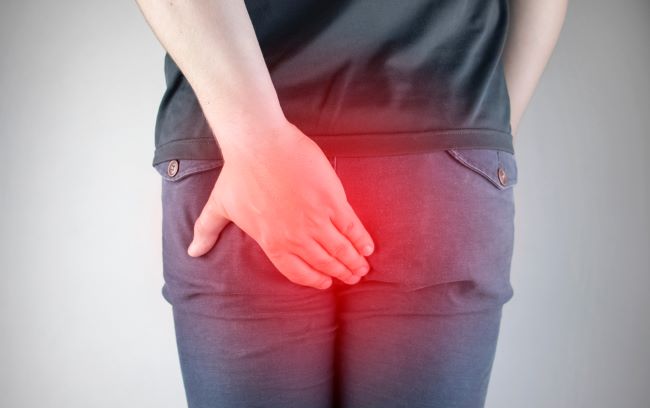A fistula is an abnormal connection or passageway that forms between two organs or vessels that do not normally connect. It can develop in various parts of the body and is often a result of injury, surgery, or infections. Fistulas can be classified based on their location and the structures they connect. Understanding the symptoms of fistulas is essential for early diagnosis and treatment, as untreated fistulas can lead to serious health complications.
In this comprehensive blog, we will discuss:
- What is a Fistula?
- Types of Fistulas
- Common Causes of Fistulas
- Symptoms of Fistula by Location
- Complications Associated with Fistulas
- Diagnosis of Fistulas
- Treatment Options
- Prevention and Aftercare
1. What is a Fistula?
A fistula is an abnormal connection between two body parts, such as an organ and the skin, or between two organs that do not normally connect. The formation of a fistula typically results from inflammation, infection, or injury that damages the tissues, leading to the creation of an unintended passageway.
Fistulas can occur anywhere in the body, including the digestive tract, urinary system, reproductive organs, and circulatory system. While some fistulas may heal on their own, others require medical intervention.
2. Types of Fistulas
Fistulas can be categorized based on their location and the organs they affect. The most common types include:
- Anal Fistula: This occurs between the anal canal and the skin around the anus. It is often the result of an abscess in the anal glands.
- Enterocutaneous Fistula: This involves a connection between the intestines and the skin.
- Gastrointestinal Fistula: An abnormal connection between different parts of the digestive system.
- Vesicovaginal Fistula: A connection between the bladder and the vagina, usually resulting from childbirth injury or surgery.
- Rectovaginal Fistula: A connection between the rectum and the vagina.
- Bronchopleural Fistula: An abnormal passage between the bronchial tubes and the pleural space around the lungs.
- Arteriovenous Fistula: A connection between an artery and a vein, often formed surgically for dialysis purposes but may also occur naturally due to trauma or disease.
Understanding the type of fistula is key to recognizing the specific symptoms and appropriate treatment.
3. Common Causes of Fistulas
Fistulas can develop for various reasons, depending on the part of the body affected. Common causes include:
- Infection or Inflammation: Conditions such as Crohn’s disease, diverticulitis, and infections can lead to fistula formation, especially in the digestive system.
- Surgery: Fistulas may form after surgery if tissues do not heal properly.
- Trauma: Physical injury to the body can result in a fistula, particularly in the urinary or digestive systems.
- Abscesses: Pockets of infection filled with pus can erode into nearby structures, causing fistulas.
- Childbirth Injuries: Prolonged or obstructed labor may result in vesicovaginal or rectovaginal fistulas.
4. Symptoms of Fistula by Location
The symptoms of a fistula can vary widely depending on its location and the organs involved. Below, we explore the specific symptoms associated with different types of fistulas.
a. Symptoms of Anal Fistula
An anal fistula is one of the most common types of fistulas. It develops as a result of an abscess that fails to heal properly. Symptoms include:
- Pain: A common symptom is pain around the anus, particularly during bowel movements.
- Swelling: There may be swelling or a tender lump near the anus.
- Discharge: A foul-smelling discharge of pus or blood from an opening near the anus.
- Itching or Irritation: Persistent itching or discomfort around the anal area.
- Fever: In cases where the fistula is infected, fever may be present.
b. Symptoms of Enterocutaneous Fistula
An enterocutaneous fistula connects the intestines to the skin. Symptoms include:
- Discharge: Abnormal discharge of stool or digestive fluids from an opening in the skin.
- Skin Irritation: The skin around the fistula may become irritated due to constant leakage.
- Abdominal Pain: Pain or discomfort in the abdomen, particularly near the site of the fistula.
- Fever: A sign of infection in or around the fistula.
c. Symptoms of Gastrointestinal Fistula
A gastrointestinal fistula connects different parts of the digestive system, often as a result of surgery or infection. Symptoms vary depending on the location of the fistula but may include:
- Diarrhea: Frequent or uncontrolled diarrhea, especially if the fistula is between the intestines.
- Malnutrition: Difficulty absorbing nutrients from food, leading to weight loss and fatigue.
- Dehydration: Loss of fluids due to the fistula can result in dehydration.
- Abdominal Pain: Pain or discomfort in the abdomen.
- Fever and Infection: If the fistula becomes infected, fever and other signs of infection may occur.
d. Symptoms of Vesicovaginal Fistula
A vesicovaginal fistula is an abnormal connection between the bladder and the vagina, often resulting from childbirth or surgery. Common symptoms include:
- Urinary Leakage: Continuous leakage of urine from the vagina.
- Foul-Smelling Discharge: A foul odor from the vaginal area due to the constant presence of urine.
- Recurrent Infections: Frequent urinary tract or vaginal infections.
- Discomfort or Pain: Pain during intercourse or urination may occur.
e. Symptoms of Rectovaginal Fistula
A rectovaginal fistula connects the rectum and the vagina, commonly caused by trauma during childbirth or surgery. Symptoms include:
- Fecal Leakage: Leakage of stool or gas from the vagina.
- Vaginal Discharge: Abnormal discharge with a foul smell.
- Pain During Intercourse: Pain or discomfort during sexual activity.
- Recurrent Infections: Frequent vaginal or urinary tract infections.
f. Symptoms of Bronchopleural Fistula
A bronchopleural fistula forms between the bronchial tubes and the pleural space around the lungs, often due to lung surgery or infections like tuberculosis. Symptoms include:
- Persistent Cough: A chronic cough that may produce fluid or pus.
- Shortness of Breath: Difficulty breathing or shortness of breath.
- Chest Pain: Sharp pain in the chest, particularly during breathing.
- Fever: A sign of infection or inflammation in the lungs.
g. Symptoms of Arteriovenous Fistula
An arteriovenous fistula is an abnormal connection between an artery and a vein, which can be either natural or surgically created for dialysis. Symptoms include:
- Swelling or Bulging Veins: A visible bulge or swelling near the fistula site.
- Fatigue: Reduced oxygen supply to tissues can cause fatigue.
- Pain or Weakness: Pain or weakness near the fistula site.
- Heart Strain: In severe cases, an arteriovenous fistula can lead to heart problems due to increased blood flow.
For Consultation Contact us on 8390861787
Website – www.chetnahospital.co.in
Address – Chetna Hospital, Sambhajinagar, MIDC, G Block, Near Rotary Club, Chinchwad 411019
.
.
.
#besthospital#pcmc#pune#chinchwad#fistula#fistulatreatment#fistulasurgery#analfistula#analfistulasurgery#fistulaoperation#analfistulaoperation#fistulaspecialist#generalsurgeon













